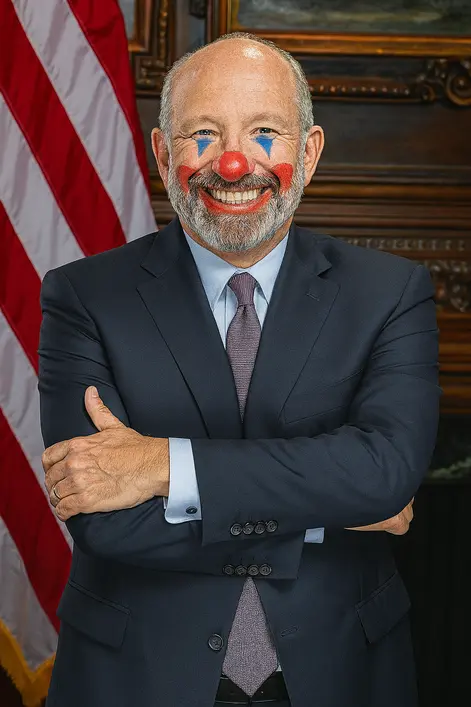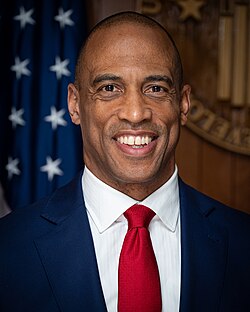Republicans Again Refuse to End Shutdown Despite Democrat Offer
Analysis of Government Shutdown Impasse
Assault on DemocracyRationale
The refusal to negotiate healthcare subsidies and the resultant prolonged government shutdown indicate a breakdown in effective governance, undermining public trust in democratic institutions and processes, and contributing to governmental dysfunction. While the immediate effects seem to be economic, the long-term implications may erode public confidence in the democratic process itself.
In a move that perfectly encapsulates the farce of modern governance, Senate Majority Leader John Thune, ever the obedient footman to The Don, rejected a Democratic proposal to reopen the government and extend healthcare subsidies for a year — a lifeline that could have ended the suffering of millions.
Democratic Leader Chuck Schumer called it a “reasonable compromise.” Thune called it a “nonstarter.” Translation: The Don hadn’t yet given permission to act like an adult.
The stalemate has now dragged into its 38th day, the longest shutdown in U.S. history — a record no sane government would brag about. But The Don, basking in his own dysfunction, has turned paralysis into performance art.
“We will stay in session until we have a Deal to end the Democrat Shutdown,” The Don bellowed on Truth Social, conveniently forgetting that the shutdown was his doing.
Airports are grinding to a halt. Federal employees are lining up at food banks. SNAP benefits remain frozen. And yet the administration’s priority remains the same: preserve power, assign blame, and protect The Don’s ego at all costs.
Thune’s hollow plea for Democrats to “end these weeks of misery” might have sounded sincere if not for the fact that his own party engineered the misery. Republicans hold all three branches of government, yet still find creative ways to play the victim.
Meanwhile, The Don continues to tweet from his palace of gold, mocking federal workers while pouring taxpayer resources into his $300 million White House ballroom — the very symbol of his detachment from the real world.
The Senate floor has become a stage for absurd theater: one side begging for sanity, the other auditioning for The Don’s approval.
This isn’t gridlock anymore — it’s governance by hostage-taking. A shutdown sustained not by necessity but by narcissism.
And so, as the nation limps into its sixth week without a functioning government, one truth remains unshakable: The Mad King reigns, the sycophants obey, and the American people pay the price.
Supreme Court Backs Donny's Bid to Block Food Aid (Again)
Evaluation of Trump Administration's Action on SNAP Benefits
Assault on Democracy Authoritarian RiskRationale
The Trump administration's attempt to block SNAP benefits demonstrates an abuse of legal mechanisms to prioritize political objectives over the welfare of citizens. The involvement of the Supreme Court, which sided with the administration, signals a dangerous erosion of checks and balances. This pattern reinforces concerns exemplified in the categories of weakening the rule of law and consolidating executive power, directly threatening democratic integrity.
Another day and another Supreme Court ruling in favor of King Dozy Don. This time to halt the full distribution of November’s SNAP benefits, cutting off food assistance to millions of struggling Americans in the midst of a historic government shutdown.
After a federal appeals court rejected the administration’s attempt to block payments, The Don’s lawyers rushed to the Supreme Court — where, in yet another grimly predictable outcome, the conservative majority handed them the victory they wanted.
The administration’s justification? That allowing families to eat would cause “irreparable harm.”
That phrase — lifted straight from the administration’s emergency filing — has become the most damning emblem yet of The Mad King’s moral decay. The idea that feeding hungry citizens could somehow harm the government would be laughable if it weren’t so grotesque.
“This decision is not governance — it’s punishment,” said one Democratic senator. “They are holding the poor hostage to preserve control.”
The ruling freezes billions in food assistance, leaving over 42 million Americans, including children, veterans, and the elderly, uncertain of where their next meal will come from.
Legal scholars warn that the decision sets a dangerous precedent, granting the executive branch extraordinary power to weaponize basic social programs for political leverage.
The Supreme Court’s complicity — rubber-stamping The Don’s cruelty under the guise of “judicial restraint” — underscores the collapse of institutional checks and balances. Once a guardian of constitutional limits, the Court now functions as the crown’s enforcer.
This isn’t about budgets or bureaucracy — it’s about control. The Don’s administration has turned hunger into a political weapon, using the nation’s poorest citizens as pawns in his endless war for dominance.
The Mad King’s message is unmistakable: mercy is weakness, and power is the only virtue worth defending.
As families line up at food banks and shelves go bare, The Don and his court celebrate another “victory” — one that will echo not in applause, but in the empty stomachs of a nation left to starve under his rule.
Once again - here's their rulings in Donny's favor during his second term:
SCOTUS Rulings
Watchdog Agency Head Firing Delayed - February 21, 2025
| Policy Area | Significance |
|---|---|
| Whistleblower Protection / Agency Independence | Supports stability in independent oversight amid executive pressure. |
Foreign Aid Payments Upheld - March 5, 2025
| Policy Area | Significance |
|---|---|
| Foreign Policy Funding | Affirms obligation to honor contracts and grants despite budgetary policy shifts. |
Teacher Training Grant Cuts Allowed - April 4, 2025
| Policy Area | Significance |
|---|---|
| Education Funding / DEI | Undercuts DEI-focused teacher support programs at state level. |
Reinstatement of Fired Federal Employees Blocked - April 8, 2025
| Policy Area | Significance |
|---|---|
| Employment Law / Federal Workforce | Strengthens executive discretion over staffing decisions. |
Reentry Ordered for Wrongfully Deported Salvadoran - April 10, 2025
| Policy Area | Significance |
|---|---|
| Immigration / Errors & Due Process | Emphasizes accountability and correction of government errors in deportation. |
Transgender Military Ban Allowed - May 6, 2025
| Policy Area | Significance |
|---|---|
| Civil Rights / Military Policy | Expands executive authority over military personnel policies, raises equal protection concerns. |
Limits on Alien Enemies Act Deportations Maintained - May 16, 2025
| Policy Area | Significance |
|---|---|
| Immigration / Constitutional Law | Reaffirms judicial oversight even in cases invoking wartime statutes. |
Termination of Venezuelan TPS Allowed - May 19, 2025
| Policy Area | Significance |
|---|---|
| Immigration / Humanitarian Status | Undermines protections for migrants from crisis-affected countries. |
Labor Board Officials Removal Allowed - May 22, 2025
| Policy Area | Significance |
|---|---|
| Administrative Law / Labor | Further erodes independence of labor-related entities. |
End of Immigration 'Parole' Upheld - May 30, 2025
| Policy Area | Significance |
|---|---|
| Immigration / Status Protections | Potentially exposes many to expedited removal, reducing avenues for relief. |
Access to SSA Data Permitted - June 6, 2025
| Policy Area | Significance |
|---|---|
| Privacy / Government Access | Raises privacy concerns regarding government surveillance power. |
DOGE FOIA Record Disclosure Block Extended - June 6, 2025
| Policy Area | Significance |
|---|---|
| Transparency / Advisory Bodies | Reinforces executive control over advisory entity transparency. |
Third-Country Deportations Allowed to Resume - June 23, 2025
| Policy Area | Significance |
|---|---|
| Immigration / Due Process | Limits procedural safeguards for migrants; emphasizes executive authority in deportation decisions. |
Birthright Citizenship Injunction Scope Narrowed - June 27, 2025
| Policy Area | Significance |
|---|---|
| Immigration / Citizenship | Clarifies limits on judicial power to issue nationwide halts on executive actions and underscores tension between executive authority and judicial oversight. |
Limits on South Sudan Deportations Lifted - July 3, 2025
| Policy Area | Significance |
|---|---|
| Immigration / Human Rights | Extends resumption of controversial deportations to politically unstable regions. |
Mass Federal Layoffs Cleared - July 8, 2025
| Policy Area | Significance |
|---|---|
| Labor / Administrative Action | Gives the administration broad leeway to reduce federal workforce despite legal challenges. |
Education Department Dismantling Permitted - July 14, 2025
| Policy Area | Significance |
|---|---|
| Education / Administrative Reform | Signals support for sweeping structural changes to major agencies. |
Removal of Consumer Product Safety Commissioners Allowed - July 23, 2025
| Policy Area | Significance |
|---|---|
| Administrative Law / Independent Agencies | Signals weakening of tenure protections for regulatory agency officials. |
NIH Grant Cuts Allowed - August 21, 2025
| Policy Area | Significance |
|---|---|
| Research Funding / Diversity Initiatives | Challenges DEI-related funding and scientific autonomy. |
Immigration Raids Proceed in Southern California - September 8, 2025
| Policy Area | Significance |
|---|---|
| Immigration Enforcement | Reaffirms executive discretion in immigration enforcement; raises Fourth Amendment concerns regarding profiling. |
FTC Commissioner Removal Stayed - September 8, 2025
| Policy Area | Significance |
|---|---|
| Administrative Law / Agency Independence | Raises questions about limits on executive power to remove independent agency officials. |
Foreign Aid Withholding Pause Granted - September 8, 2025
| Policy Area | Significance |
|---|---|
| Foreign Policy Funding / Congressional Appropriation | Heightens separation-of-powers dispute over control of spending. |
Supreme Court allows Trump officials to freeze billions in foreign aid - September 26, 2025
| Policy Area | Significance |
|---|---|
| Foreign Policy / Appropriations / Separation of Powers | This decision strengthens executive control over congressional appropriations in the foreign aid domain, at least as an interim remedy, and highlights how the Court is increasingly willing to engage in high-stakes emergency rulings affecting core powers between branches. |
Supreme Court upholds Trump administration rule limiting gender identity on passports - November 6, 2025
| Policy Area | Significance |
|---|---|
| Civil Rights / LGBTQ+ Rights / Administrative Law | This decision curtails federal recognition of gender identity in official documents and reinforces executive authority over identification policy. It marks a significant rollback of transgender rights, underscoring the Court’s willingness to defer to executive interpretations even when they restrict individual identity and equal protection. |
Supreme Court grants Trump administration request to block full SNAP benefit distribution - November 7, 2025
| Policy Area | Significance |
|---|---|
| Social Policy / Administrative Law / Separation of Powers | This decision temporarily empowers the executive branch to withhold congressionally authorized food assistance under the guise of administrative discretion. It underscores the Supreme Court’s expanding use of the emergency docket to shape major policy outcomes and signals a troubling shift toward executive dominance in welfare administration. |
The Don Plays Favorites: Hungary Gets a Free Pass on Russian Oil as Allies Fume
Analysis of Sanctions Exemption for Hungary
Assault on Democracy Authoritarian RiskRationale
The selective enforcement of sanctions based on political alliances undermines the integrity and credibility of U.S. foreign policy. It signals a willingness to prioritize political considerations over consistent accountability, which can erode democratic standards and norms. This action aligns with the trends of international isolation and fosters a perception of corruption in foreign relations.
In yet another episode of The Don’s transactional foreign policy, President Donald Trump has handed Hungary a one-year exemption from U.S. sanctions on Russian oil and gas imports, effectively giving Viktor Orbán everything he wanted — and more.
During their meeting, The Don praised the Hungarian strongman’s “great job on immigration” (read: border walls and anti-refugee rhetoric) while conveniently sidestepping any mention of Russia’s ongoing war in Ukraine. Hours later, a White House official confirmed what Orbán had already hinted at: Hungary is exempt from the Russian energy ban, at least for a year.
Other nations — including U.S. allies like India, Japan, and South Korea — are scrambling to adjust to Washington’s latest erratic policy shift, one that threatens to penalize them for buying Russian oil. But Orbán? He gets a golden ticket.
“Hungary must protect its people first,” Orbán declared triumphantly after the meeting, revealing plans to purchase nuclear fuel from U.S.-based Westinghouse Electric while continuing to buy Russian nuclear fuel — a diplomatic two-step that would make any autocrat proud.
The move lays bare The Don’s selective enforcement of sanctions, turning a supposedly firm stance against Russia into a political bargaining chip. By granting Orbán this pass, the administration has effectively told the world that loyalty to Trump, not adherence to principle, determines U.S. foreign policy.
Critics argue that the exemption undermines Washington’s credibility, sending a clear message that America’s so-called “toughness” on Russia is little more than performance art. It’s a policy of contradictions: punish allies who comply too slowly, reward strongmen who flatter the president.
Even within diplomatic circles, the decision is being read as a quid pro quo between two nationalist leaders who share a disdain for liberal democracy and a taste for authoritarian theatrics.
“This isn’t strategy — it’s favoritism disguised as diplomacy,” said one European analyst. “It tells the world that U.S. sanctions are for enemies, not friends of the regime.”
Once again, The Mad King’s foreign policy boils down to flattery and convenience: praise him, parrot his worldview, and you’ll get your exemption — whether it’s from tariffs, laws, or, in this case, global accountability.
As the U.S. lectures the world on defending democracy, The Don continues to cozy up to its dismantlers, proving that in his kingdom, loyalty outweighs law, and friendship with authoritarians always pays.



























